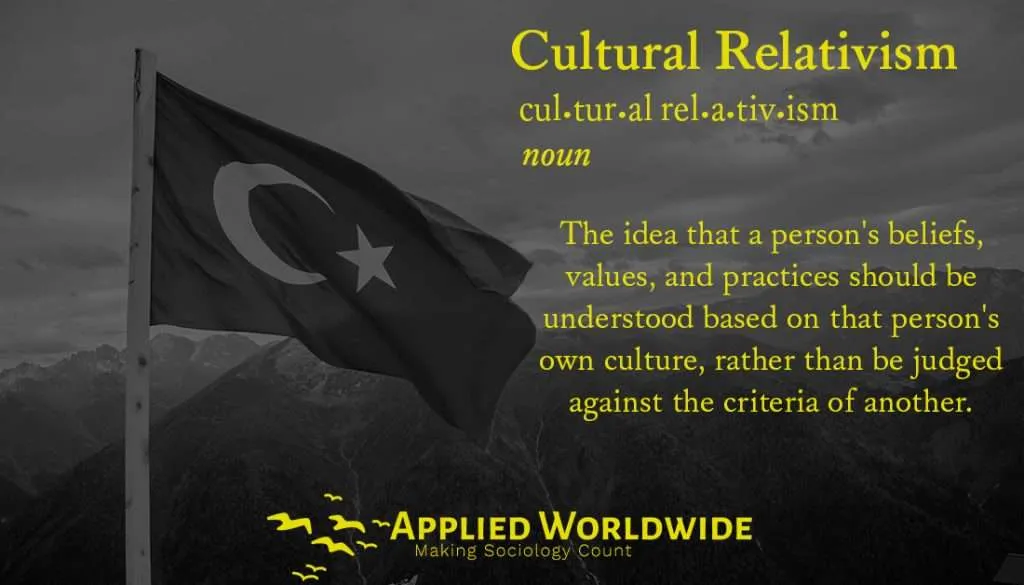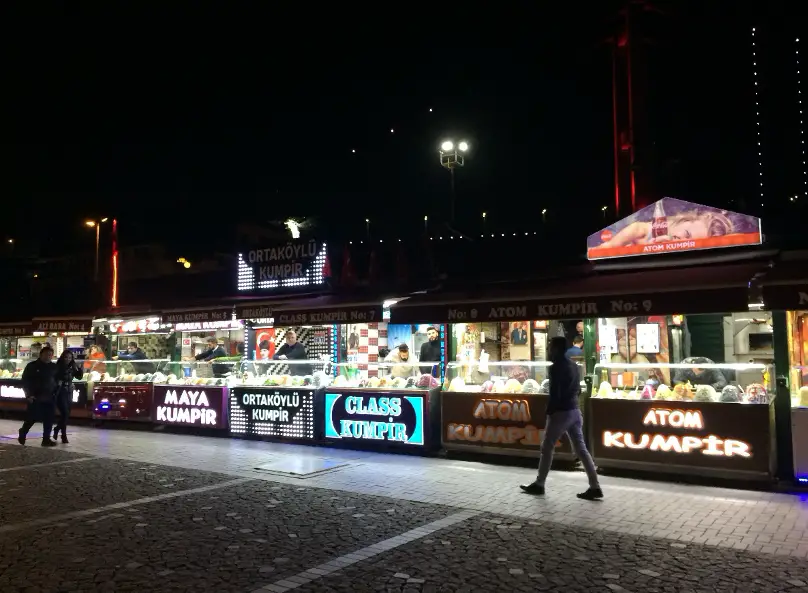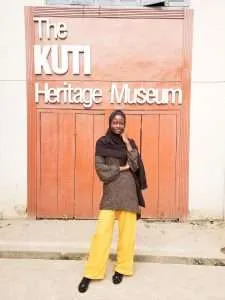Cultural relativism and ethnocentrism in sociology are popular terms. These are terms that are learned in introductory sociology courses, but I want to reflect on my own travel experiences through the lens of these terms as an example. First, I should define what these terms mean.
What is Cultural Relativism in Sociology?
Cultural relativism is the view that ethical and social standards reflect the cultural context from which they are derived. This means viewing different cultures from their own values.
What is Ethnocentrism in Sociology?
William Graham Sumner, on the other hand, held that ethnocentrism is defined as extreme attachment to the ingroup, leading to outgroup hate. This is more like viewing other cultures from the perspective of your own values.
Sociology teaches cultural relativism as an ideal, but what does it mean to live what we teach?
Teaching Cultural Relativism and Ethnocentrism
As a professional sociologist, I have taught undergraduate Introductory Sociology courses at Purdue University and other places for several years. Throughout these courses, I find myself repeatedly emphasizing to students the importance of having a cultural relativistic (as opposed to ethnocentric) perspective.
This is an especially important lesson for my students, who are primarily young white Midwesterners with very little exposure outside of their immediate geographical and cultural contexts. I reinforce this by assigning classics like Horace Miner’s “Body Ritual among the Nacirema” (1956), as well as through in-class activities examining cultural variations in things like beauty standards, artistic styles, and food preferences. Again and again, I come back to this theme throughout the course because it connects to a core tenet of the discipline of sociology: making the familiar strange. As Peter Berger wrote in “Invitation to Sociology” (1963),
Much of the time the sociologist moves in sectors of experience that are familiar to him and to most people in his society. He investigates communities, institutions and activities that one can read about every day in the newspapers. Yet there is another excitement of discovery beckoning in his investigations. It is not the excitement of coming upon the totally unfamiliar, but rather the excitement of finding the familiar becoming transformed in its meaning. The fascination of sociology lies in the fact that its perspective makes us see in a new light the very world in which we have lived all our lives. This also constitutes a transformation of consciousness.
Peter Berger
Stepping Outside our own Context
By stepping outside of our immediate context and looking beyond to how other societies do things differently, we can begin to make the familiar strange. This way of seeing is what C. Wright Mills (1959) described as “the sociological imagination”. It helps us to become cognizant of the everyday, and by extension, to become aware of how societies are structured, and cultures constructed.
Our own culture and social structures are inherently invisible to us due to our socialization. It requires special effort to bring them to the forefront of our awareness and develop an analytical perspective on the social world and our place in it. By comparatively studying the many different cultures of the world, we can better understand how all human societies work.
And yet, as a sociologist, I feel it is not enough to simply say these words. This is a philosophy which must be lived. People must experience other cultures for themselves in order to truly understand them. After all, travel is the best form of education. As Mark Twain (1869) once wrote, “Travel is fatal to prejudice, bigotry, and narrow-mindedness…” Thus, when I was faced with the opportunity to move abroad to join my partner living in Turkey, I was very excited to take the plunge into a whole new and different world.
Experiencing Cultural Relativism and Ethnocentrism
I can still recall my first mornings being awoken by the call to prayer from the minarets of a nearby mosque. It was somewhat jarring in its relative alienness, yet now after living in Ankara for five months, I barely register the sound. It is like hearing church bells on Sundays in the US, you basically just tuned it out after a while. In fact, the Islamic religiosity in Turkey is not all that different from Christianity in the US. It amazes me now to think about how much I have adapted to in such a short period.

Turkish Food
Turkish food is one area in which I have noticed myself adapt. I have become a lover of kebab, börek, poğaça, lahmacun, beyti, and many other Turkish foods. I even started eating my French fries (patates kızartması) with mayonnaise, a common practice here. The relative lack of mass-produced processed food and industrial agriculture means fresh organic vegetables, fruits, breads, and meats are still quite common and inexpensive, in contrast to the US where healthy organic foods are often more expensive and less accessible. Turkish people love good food, as evidenced by the endless series of restaurants and sidewalk cafes.
Historical Context
The fantastic food is one of the things I have fallen most in love with about this culture. Another of my favorite things is the amazing amount of history here. This land dates back to the earliest human civilizations (the site of Göbekli Tepe is more than 10,000 years old, the oldest human-made temple ever discovered), and it is not uncommon to see ancient castles and ruins dating back to pre-Roman civilizations all over the place.
For someone like me who grew up in an American oil-boom town barely a century old, I am blown away by this. What kind of impact must it have on the human psyche, and the collective conscience of a society, to live in such a deeply rooted historical context?
Economic Competition in Turkey
There are so many of these types of examples I can point out. Many of them are light-hearted and fun, but some point to deeper socio-cultural patterns. For example, there are so many individually owned small shops along the streets, what we used to call “mom and pop shops” in the US before corporate chains and urban sprawl took over most cities. My impression was that many of these small shops would not be profitable enough to sustain themselves in the US.
For example, I once noticed three pharmacies (eczane) on the same block and asked my partner how this could be. How could so many identical small stores compete with one another to stay open? She explained to me that many small shopkeepers here do not necessarily seek endless profit and expansion, and thus they do not compete with one another in the same sense. Instead, they actually cooperate to a certain extent.
They may, for instance, work out a mutually beneficial schedule in which they take turns being open after hours or on Sundays. Normally, they are closed on Sundays, but at least one eczane per area must be open after hours and on Sundays. Growing up in the context of American neoliberal capitalism, this symbolizes a significant difference in cultural attitudes and, by extension, economic practices.
Christmas in Turkey
In contrast, one of the most surprising things I encountered was actually very familiar to me, but startling to see so out-of-context in Turkey. Around December, I began to see lights, reindeer, Santa Clauses, and Christmas Trees popping up, despite the fact that this is a predominantly Muslim country which does not celebrate Christmas.

As I learned, they refer to these as “holiday trees” and associate these decorations celebrating the New Year. However, it is no coincidence that these decorations mostly appear in commercial shopping areas. I quickly realized that this is a clear example of the influence of globalization, both in terms of homogenization and glocalization.
Final Thoughts on Cultural Relativism and Ethnocentrism in Turkey
My partner, who is also a sociologist, and I talk about these little things all the time. I constantly notice new things, and they make visible to me how it is different from the culture in which I grew up. When I ask my partner about them, they also become visible to her. It has led us both to question so much about our social world that most people typically take for granted. But at the same time, I find it remarkable how similar these two cultures could be.
Even with all these differences, we have far more in common. Adapting to life in another country was not as difficult or shocking as I had originally thought it may be. I have a happy and peaceful life here. I am even taking classes to learn to speak Turkish. After only a few months, I have become very comfortable living in this new (to me) culture.
Turkey has its own social and political problems, of course, but so does every society. At least here, I do not have to be afraid of a mass shooting on my campus or losing my life savings after a health care emergency, like I was in the US. I miss seeing my family, and eating delicious street truck tacos, but I have found so much here. People treat me as family, even though I am not a native.
Cultural Relativism in My Own Experience
There is such a rich culture and history which cannot be explained in words. It can only be experienced for oneself. Living in a different society, the familiar is made strange in so many ways, and I truly see the everyday world around me in a new light. I feel that applying the sociological imagination and the principle of cultural relativism to my own lived experience has made me not only a better academic, but as Berger said, it has transformed my consciousness as a human being.







